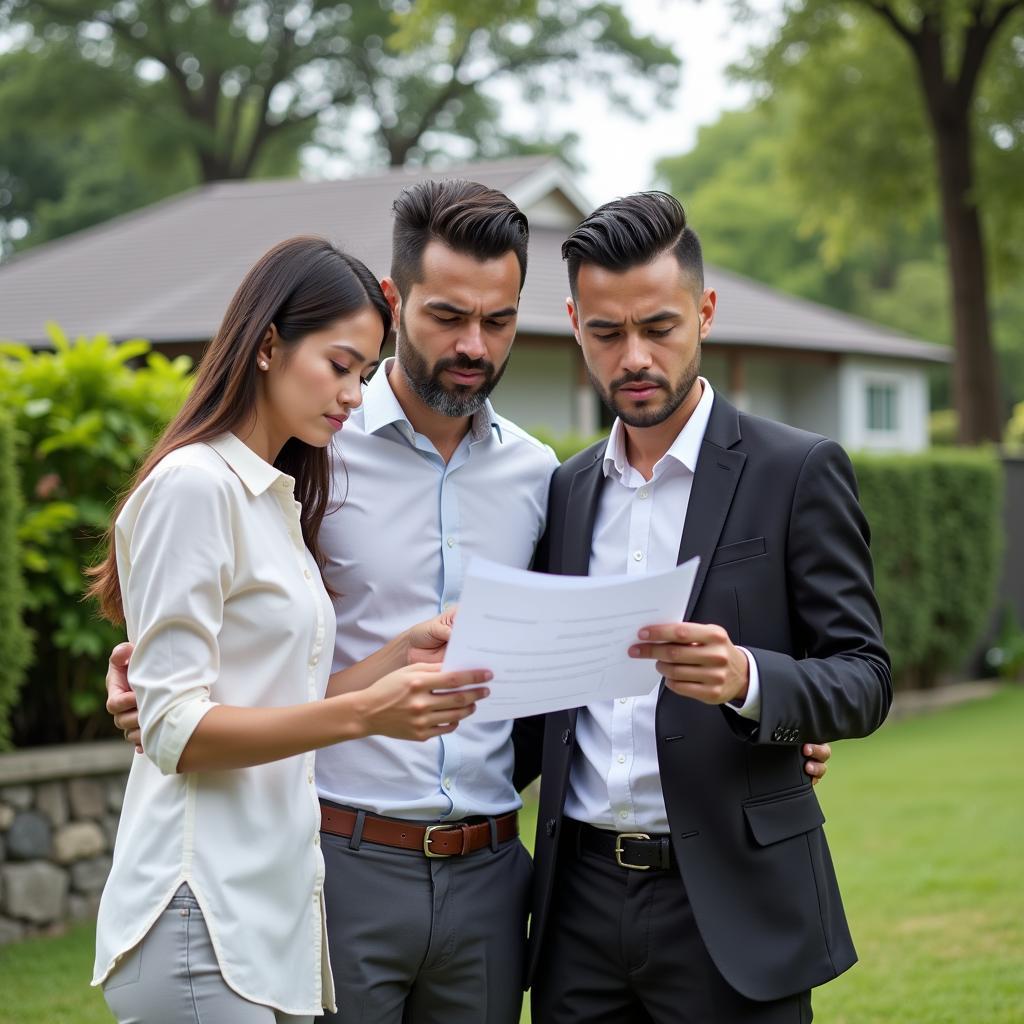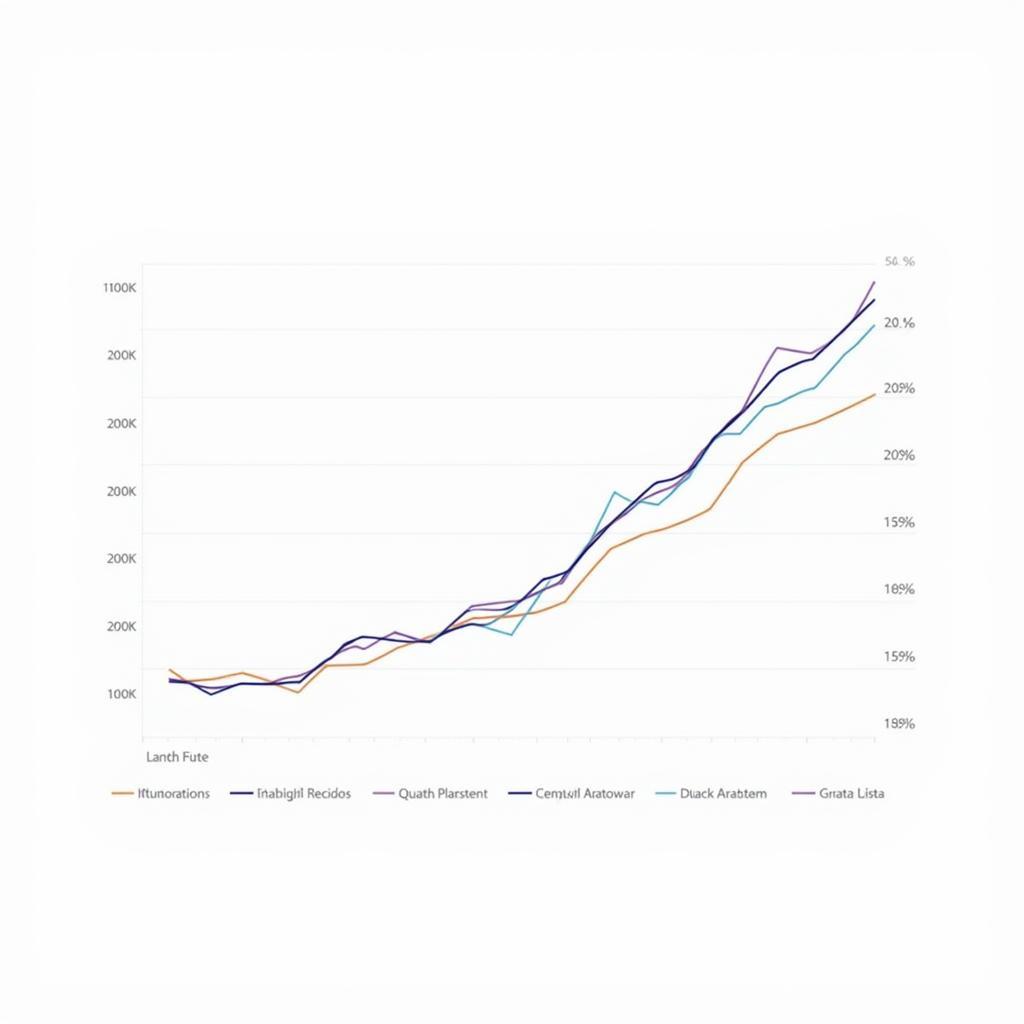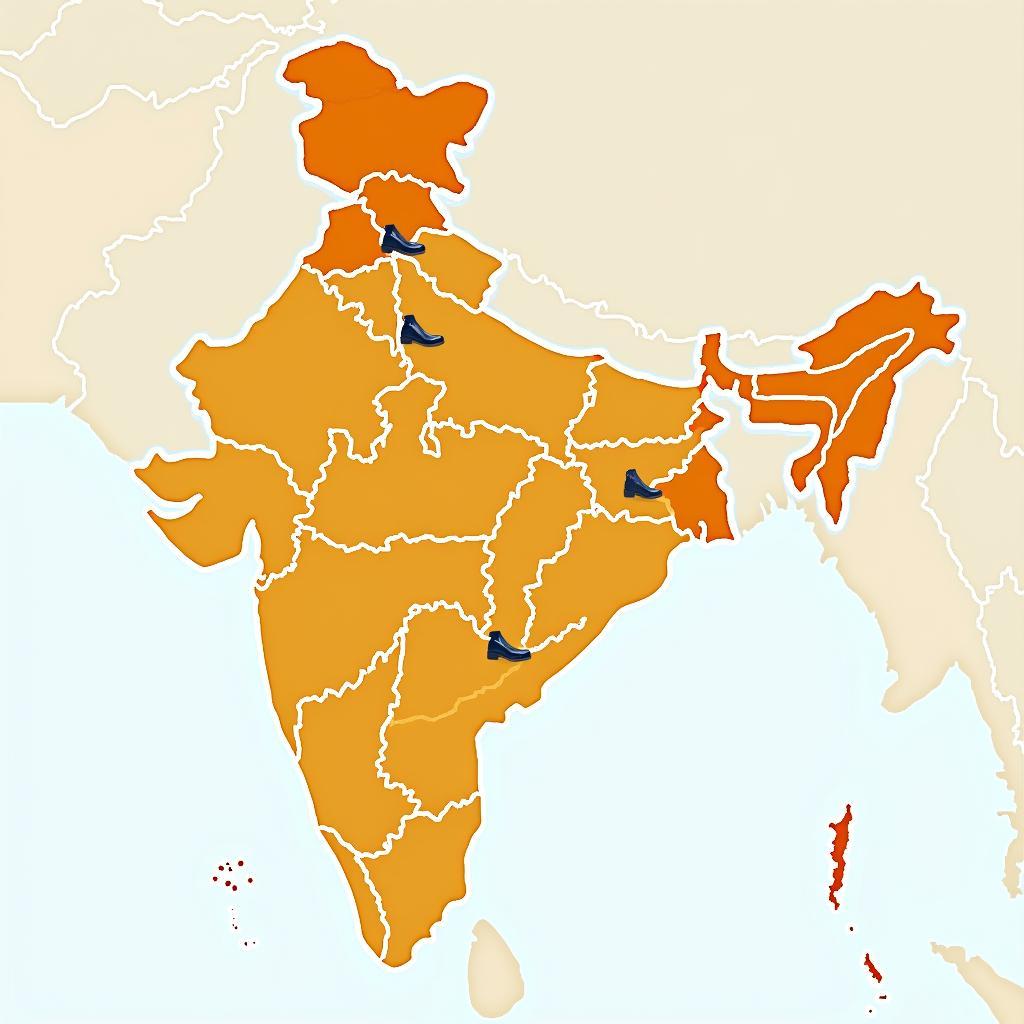Indonesia’s natural beauty, diverse culture, and growing economy have made it an attractive destination for foreigners looking to invest or settle down. However, the regulations surrounding land ownership for non-Indonesian citizens can be complex and require careful consideration. This article delves into the question: Can foreigners own land in Indonesia?
 Foreign land ownership regulations in Indonesia
Foreign land ownership regulations in Indonesia
Understanding Land Rights in Indonesia
To fully grasp the rules for foreigners, it’s essential to understand the different types of land rights recognized in Indonesia:
- Hak Milik (Right of Ownership): This is the most comprehensive right, granting Indonesian citizens the authority to own land indefinitely. It can be inherited and transferred freely.
- Hak Guna Usaha (Right to Cultivate): This right is specifically for commercial exploitation of the land, typically for agricultural, mining, or forestry purposes. It can be granted for up to 35 years, with the possibility of renewal.
- Hak Guna Bangunan (Right to Build): This right allows the holder to construct and own buildings on a piece of land. It doesn’t include ownership of the land itself. Foreigners can obtain this right under certain conditions.
So, Can Foreigners Own Land in Indonesia?
The short answer is no. Indonesian law clearly states that foreign individuals cannot directly own land with Hak Milik rights. This restriction stems from the country’s constitution, which emphasizes national ownership of its land resources.
What are the Options for Foreigners?
While direct land ownership might be off the table, there are alternative routes for foreigners seeking to secure property rights in Indonesia:
-
Hak Pakai (Right of Use): This right allows foreigners holding a valid visa to use and reside on land for a specific period. It can be granted for up to 80 years, depending on the purpose and the visa held.
-
PT PMA (Foreign-Owned Limited Liability Company): Foreigners can establish a PT PMA to purchase land under the company’s name. The land rights would belong to the company, not the individual shareholder. However, it’s crucial to note that this option is generally restricted to specific business activities outlined in the company’s investment license.
-
Marrying an Indonesian Citizen: If a foreigner marries an Indonesian citizen, they are still not granted direct land ownership. However, they can obtain the Hak Pakai right through their spouse.
-
Nominee Agreements: While legally ambiguous, some foreigners enter into informal “nominee agreements” with trusted Indonesian citizens. In this arrangement, the Indonesian citizen holds the Hak Milik title on behalf of the foreigner. However, this practice carries significant risks and is not legally recognized.
Navigating the Legal Landscape
Navigating Indonesian land ownership regulations requires meticulous attention to detail. Here are some essential points to keep in mind:
- Engage a reputable legal professional: Consulting with a lawyer specializing in Indonesian property law is crucial. They can provide guidance on the legal options available and ensure compliance with all regulations.
- Due Diligence is Key: Before making any commitments, conduct thorough due diligence on the property and the seller. This includes verifying ownership, checking for any encumbrances, and understanding zoning regulations.
- Be Wary of Scams: Unfortunately, land ownership scams targeting foreigners are not unheard of in Indonesia. Be cautious of deals that seem too good to be true, and always work with reputable agents and lawyers.
Conclusion
While the regulations surrounding land ownership for foreigners in Indonesia may seem complex, understanding the options and seeking expert advice can help navigate the process smoothly. While direct ownership remains off-limits, various alternatives exist, allowing foreigners to secure property rights and make the most of their investment in this vibrant archipelago.
FAQ
1. Can I inherit land in Indonesia as a foreigner?
No, foreign individuals cannot inherit land with Hak Milik rights in Indonesia.
2. What happens to my Hak Pakai rights if my visa expires?
Your Hak Pakai rights are typically tied to the validity of your visa. It’s essential to consult with an immigration lawyer to understand the implications of visa renewal or expiry on your land rights.
3. Are there restrictions on the type of property foreigners can purchase in Indonesia?
Yes, there may be specific restrictions on purchasing property in certain areas, such as those designated as strategic or culturally sensitive zones.
4. Can I use my property in Indonesia for commercial purposes?
The permitted use of your property will depend on the type of land right you hold and any relevant zoning regulations. For commercial activities, establishing a PT PMA might be necessary.
5. How can I find a trustworthy lawyer specializing in Indonesian property law?
Seek recommendations from reputable sources such as embassies, foreign chambers of commerce, or trusted online legal directories.
For further assistance, please contact:
Phone Number: 0369020373
Email: [email protected]
Address: Thon Ngoc Lien, Hiep Hoa, Bac Giang, Vietnam
Our customer support team is available 24/7 to assist you.


